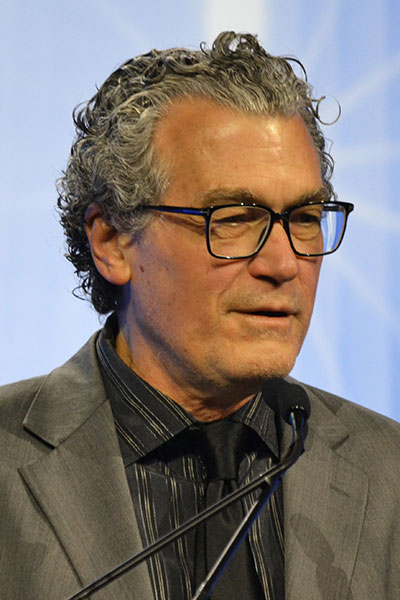Sunday’s Keynote speaker at the ATS 2023 International Conference shone a light on health disparities and how science and research can improve imbalances in health equity.

Eliseo J. Pérez-Stable, MD, director of the National Institute on Minority Health and Health Disparities, outlined some of the ways science can reduce inequities, including promoting diversity in the scientific and clinical workforce, engaging the community and building trust, standardizing the measurement of social and demographic factors that affect health, and implementing what is already known to work in improving equity. Dr. Pérez-Stable also emphasized discovery science through data.
“We are sorely lacking in data science expertise in the health disparity, minority health, and health equity areas,” he said. “I think this is an area of priority that we encourage people to be more in tune to.”
In 2000, the NIMHD defined groups affected by health disparities for inclusion in legislation focusing on the issue. The groups included racial and ethnic minority populations in the U.S. census, the poor among any race or ethnicity, and underserved rural residents. In 2016, sexual and gender minorities joined that group. These populations have a social disadvantage that results in part from being subject to discrimination, in addition to being underserved in health care.
Dr. Pérez-Stable defined a health disparity as a health outcome that is worse in these populations compared to a reference population group, although the existing reference group is one that NIMHD leaders are rethinking, he said.
Race, ethnicity, and socioeconomic status are essential in determining health, Dr. Pérez-Stable noted.
“These things influence health in so many ways that we don’t understand that we must measure them in a standardized way,” he said. “If we don’t do that, we’ll be missing mechanisms and effects that are really important.”
Examples he provided included asthma affecting African American and Puerto Rican populations disproportionately, and most chronic diseases being more common in people with less privileged socioeconomic status.
He presented a study from 2018 on the economic burden of health inequities by race and ethnicity in the U.S., which put the total at more than $420 billion. That takes into account excess medical care costs, lost labor productivity, and, predominantly, excess premature death costs, of which African Americans had by far the largest burden.
Having less than a college degree as one’s highest level of education significantly increases health inequity, too, especially regarding premature death, Dr. Pérez-Stable noted.
“Having a college degree is good for your health,” he said. “Even if there is no other reason for a young person to go to college, this one is worth considering.”
Ultimately, Dr. Pérez-Stable said patient-clinician communication matters because it is directly linked to higher patient satisfaction scores, better adherence, and improved health outcomes. Movie stars and athletes are not the messengers who will improve widespread health equity, Dr. Pérez-Stable said. It is an essential part of a health care professional’s job to move that needle.
“We need to move at the speed of trust,” he said. “Working with communities requires patience and time to build relationships.”
The lecture was the first Fran Comi Keynote Lecture, named in honor of Ms. Comi, a longtime ATS staff member who died in June 2022. At last year’s International Conference, she was the first staff recipient of the Distinguished Achievement Award. In 2001, she was the first staff member to receive an ATS Presidential Commendation.
REGISTER FOR ATS 2024
Register today for the ATS 2024 International Conference! Don’t miss this opportunity to take part in the in-person conference, May 17-22 in San Diego. Join your colleagues to learn about the latest developments in pulmonary, critical care, and sleep medicine.
Not an ATS member? Join today and save up to $540.
